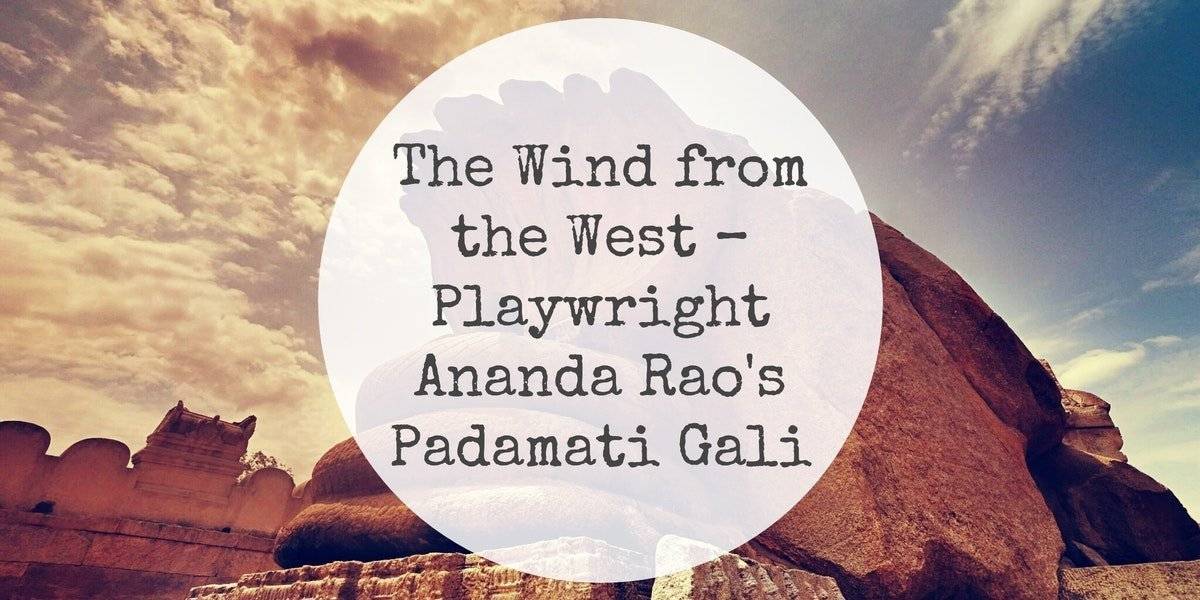Note: This is not an IP post, and has only one reference to copyright protection.
It comes; It changes; And it goes.
It changes lives, lives of farmers, who provide food to the world. For many of us, the wind is nothing more than a phenomenon. But for farmers and their families, it is a life changing event.
Seventy two years after independence, farmers in India continue to live uncertain lives. Their struggles are not much different from those before independence. The protests, the marches, the strikes, and the sacrifices prevail, and the fight is still on. Only the adversary has changed. This is the theme of Mr. Patibandla Ananda Rao’s popular play, The Wind from the West, ‘Padamati Gali‘ in Telugu.
A highly respected playwright in his own right, Ananda Rao’s work has been critically acclaimed. Several scholars compare his “Padamati Gali” with the great writer Gurajada Appa Rao’s celebrated play “Kanyasulkam.” Several books have been written about Ananda Rao’s play, and several scholars are studying the literary work. Ananda Rao received several prestigious awards for his work including NTR Rangasthala Puraskaram, Kala Ratna award, and Jashuva award, and his writings are considered as contemporary masterpieces.
Set in a small village, ‘The Wind from the West’ tells the story of a farmer, whose heart and soul is his farm, and who is willing to give up everything, even his life, for his farm. A Multi-National Company decides to acquire the land in the area to set up its factory, and money lenders, real estate agents, politicians and landlords smell an opportunity to profit from the same. They try every trick in their malicious minds to acquire the farmer’s land, but with every attempt they make, the resistance grows stronger. Despite rising personal and financial hardships and pressure from several quarters, the farmer sticks to his farm with the stubborn conviction that mother earth will pull him out of his problems.
Ananda Rao expounds the social, political, cultural and economic aspects of rural life through his riveting, illuminating and thought provoking play. The Wind from the West is a four hour long play without breaks, but no one moves from their seats until the end. Sitting among the audience, I found myself laughing, crying, and clapping with others. Though the stage, lighting, and sound systems were below average, the performers made up for the disadvantages with their exceptional performances.
After the play, I had the opportunity of speaking with Mr. Ananda Rao about the play, and was disappointed to learn that the hundred and twenty ninth performance was their last performance. He however said that he would be happy to permit if any theatre group wishes to perform the play. When I asked him about copyright protection, he smiled and said that it never crossed his mind to register a copyright. The Wind from the West is one of the best plays I have seen, and I hope it continues to be played and its message taken far and wide like that of Kanyasulkam.



